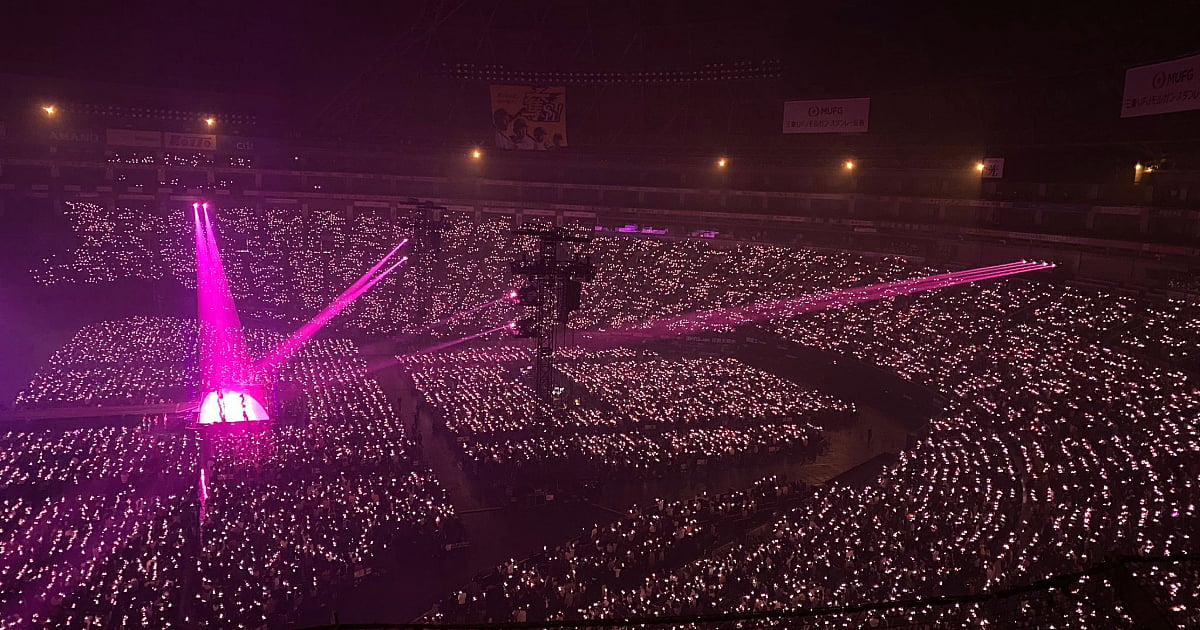
a Scene from an Indian music festival
Does India Need a National Policy For Concerts and Events?
Highlights
- Assam’s Concert Tourism Policy aims to make the state a top destination for large concerts and international music festivals through simplified permissions, subsidies, and tax benefits.
- The policy includes investments in new arenas, infrastructure upgrades, and partnerships with global production houses to host marquee events.
- Assam plans to blend international acts with traditional local music, preserving cultural heritage while boosting its live music scene.
Assam and Meghalaya, two culturally rich states in Northeast India known for their vibrant live music scenes, recently initiated policies to boost their concert and tourism industries. With India positioning itself to become a global destination for artists like Coldplay and Metallica, does the country need a nationwide policy? Let's examine what Assam and Meghalaya are trying to achieve and whether India should replicate these states' approaches across the country.
What Are Assam and Meghalaya’s Concert Policies?
Assam's Concert Tourism Policy, launched in May 2025, represents a bold step to establish the state as a major destination for large-scale concerts and international music festivals. Assam stands out as the first Indian state with a dedicated "Concert Tourism Policy," positioning cities like Guwahati, Jorhat, and Dibrugarh as live music hubs through simplified permissions for organizing concerts, capital subsidies, and tax benefits for promoters.
The policy includes major investments in new arenas and infrastructure upgrades, partnerships with global production houses for annual marquee events, and the establishment of a dedicated Concert Tourism Cell to drive these initiatives. Assam aims not only to host international stars like Post Malone but also to integrate traditional culture, including folk music and local troupes, into international concert lineups, preserving local musical forms alongside global acts.
Meghalaya presents a contrasting approach with its more mature concert culture, particularly centered around Shillong. The state has a long-standing tradition of music festivals and concerts, having hosted global artists like Ed Sheeran. Leveraging its scenic beauty and vibrant community-driven music scene, Meghalaya's policy emphasizes cultural conservation and infrastructure development for arts, crafts, and indigenous music heritage sites.
Despite their strengths, both policies have notable limitations. A significant weakness is their regional focus: each state operates independently without coordination or shared standards. There is no formal mechanism to create consistent regulations or pool resources for pan-India concerts.
Do We Need a Nationwide Concert Policy?
Outside Northeast India, the concert tourism market is vibrant but unevenly structured. Major metropolitan areas such as Mumbai, Delhi, and Bengaluru have historically served as hubs for large concerts and music festivals. Maharashtra and Gujarat, in particular, have successfully hosted major international acts; Coldplay's concerts in Ahmedabad reportedly generated revenues of around ₹600 crore.
However, the landscape is beginning to shift. India has recently initiated several policy and strategic measures to nurture its concert economy, recognizing the sector's potential to generate 12 million temporary jobs by 2032. At the national level, discussions around Union Budget 2025 emphasize dedicated funding for concerts and live events, including subsidies, tax incentives, and financial support for organizers across all scales.
The government is also advocating for a Single-Window Clearance System: a centralized, digital platform that would allow organizers to obtain all necessary permissions (fire safety, noise permits, artist visas) through one streamlined process. This initiative aims to reduce bureaucratic red tape that currently prevents many states from hosting major events, addressing a long-standing challenge in the industry.
Global stars frequently perform in Mumbai and Delhi, driven largely by private promoters and organizers who work within disparate municipal and state regulations. While many states still lack explicit policy frameworks dedicated to concert tourism, relying instead on event-specific permits and conventional entertainment licensing, there's growing recognition at the policy level that a more coordinated approach is needed.
In contrast, the Northeast beyond Assam and Meghalaya remains relatively underdeveloped in infrastructure and policy for concert tourism, despite the region's strong musical culture. The area shows potential for growth if investments and policy support increase. Cultural festivals like the Hornbill Festival in Nagaland hint at possibilities, but large-scale international events remain uncommon.
Given the fragmented nature of India's current concert tourism landscape, instituting a comprehensive pan-India concert tourism policy could offer transformative benefits. Current national-level initiatives suggest the government recognizes this potential. Proposed infrastructure development investments aim to expand and modernize concert venues, especially in tier-2 and tier-3 cities, to match international standards in sound, lighting, logistics, and crowd management.
A countrywide policy could create better regulatory frameworks, building on the proposed Single-Window Clearance System to simplify permissions, taxes, and licensing processes across states. Additionally, there's growing emphasis on talent development—supporting training for event professionals, sound engineers, and concert staff, recognizing that skill development is essential for scaling up the live entertainment sector.
There is also a pressing need for infrastructure development in emerging hubs beyond the metros, including cities in the Northeast and smaller cultural centers known for their music. Current policy discussions emphasize public-private partnerships to develop world-class event infrastructure, reduce organizer risk, and scale up India's standing in the global concert circuit. Modern concert policies are also factoring in eco-friendly practices, including waste management and efficient venue operations, alongside enhanced public safety standards. Additionally, there must be a strong focus on promoting local artists and providing them with the spotlight they deserve. This priority is already reflected in emerging policies that emphasize homegrown artists, cultural preservation, and domestic music traditions alongside international acts.
The Indian government could actively promote India as an integrated global concert destination. Coordinated marketing campaigns, combined with state efforts, could brand India as a diverse, vibrant music and cultural tourism hotspot to attract tourists from around the world. Urban planning policies are beginning to recognize the concert economy's role as a driver of city growth, with pushes for integrating event-based development, including entertainment districts, better transport systems, and digital ticketing infrastructure, within broader city planning frameworks.
Adding to these challenges is the critical need for strict, standardized safety and security protocols to safeguard both audiences and performers. Recent tragic incidents during Indian Premier League (IPL) matches, where crowd mismanagement and inadequate safety measures led to fatalities, underscore how safety lapses can have catastrophic consequences and severely damage public confidence.
While Assam and Meghalaya have pioneered state-level concert tourism policies, their isolated approaches highlight the need for national coordination. Current federal initiatives suggest momentum toward a comprehensive framework that could streamline regulations, boost economic growth, and establish India as a premier global concert destination.
With the sector projected to generate substantial employment and economic benefits, a national policy that respects state autonomy while providing coordinated support would help India realize its potential as a cultural hub for both domestic and international artists. The foundation is being laid; now it's time to build the structure.

Author
Abhimannu Das is a web journalist at Outlook India with a focus on Indian pop culture, gaming, and esports. He has over 10 years of journalistic experience and over 3,500 articles that include industry deep dives, interviews, and SEO content. He has worked on a myriad of games and their ecosystems, including Valorant, Overwatch, and Apex Legends.
Abhimannu Das is a web journalist at Outlook India with a focus on Indian pop culture, gaming, and esports. He has over 10 years of journalistic experience and over 3,500 articles that include industry deep dives, interviews, and SEO content. He has worked on a myriad of games and their ecosystems, including Valorant, Overwatch, and Apex Legends.
Related Articles







